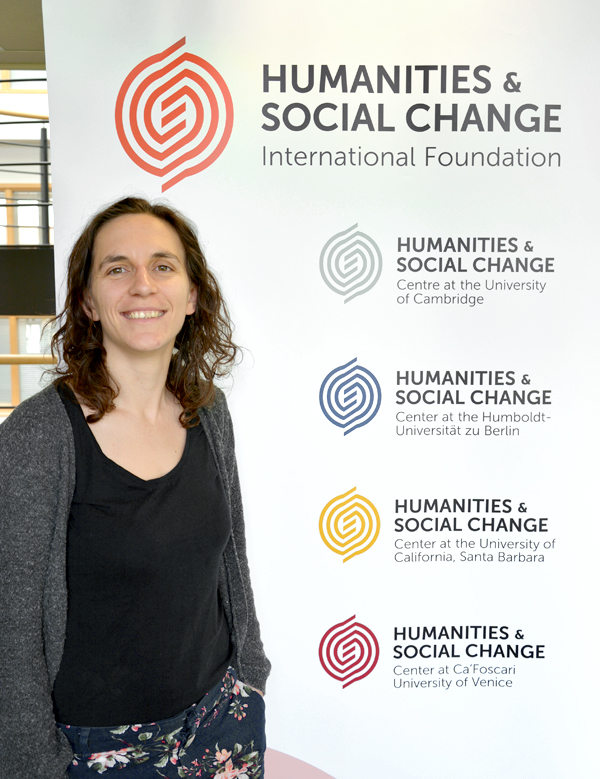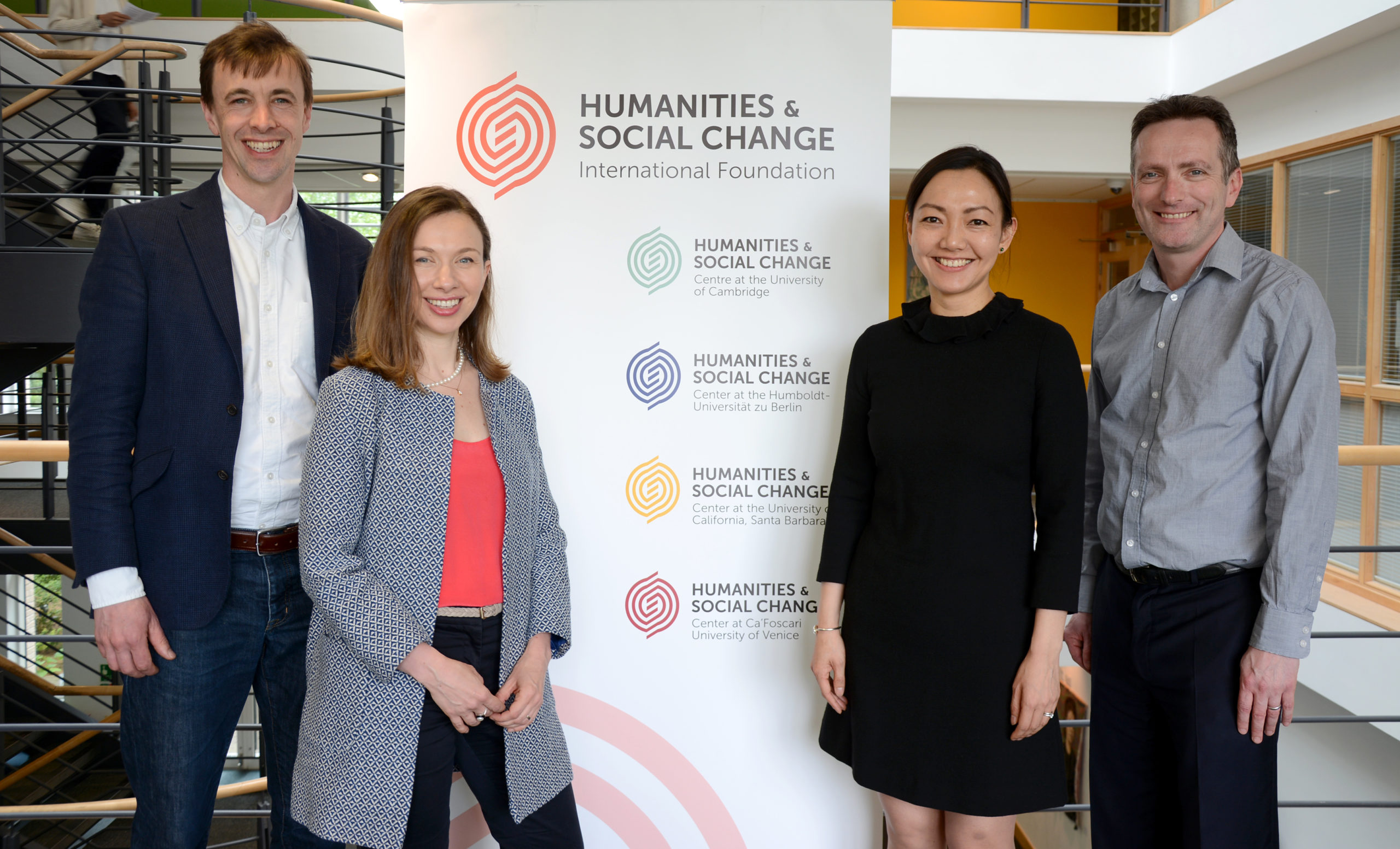 In October 2018, two research projects – Expertise Under Pressure and Giving Voice to Digital Democracies: The Social Impact of Artificially Intelligent Communications Technology – joined the Centre for the Humanities and Social Change, Cambridge.
In October 2018, two research projects – Expertise Under Pressure and Giving Voice to Digital Democracies: The Social Impact of Artificially Intelligent Communications Technology – joined the Centre for the Humanities and Social Change, Cambridge.
We are delighted to welcome Hannah Baker, Research Associate on Expertise Under Pressure, to the Centre and asked about her hopes for the project.
Q. Hannah, which aspect of Expertise Under Pressure do you find most exciting?
I thoroughly enjoy researching and expanding my knowledge and feel that working within a multi-disciplinary team is a great way for facilitating this. So far in my education and academic career I have worked in architecture, town planning and engineering departments. I have not yet worked directly alongside social scientists. I am looking forward to utilising this collaboration to learn from the rest of the team and other researchers within CRASSH to gain an in-depth understanding of the variety of research approaches used to assess the concept of expertise. I also hope that this relationship can go both ways and I am able to offer input from my research in the built environment.
Q. How does your own area of interest relate to the project’s primary research questions?
I will be researching expertise within the context of the UK’s Science Advisory Group for Emergencies (SAGE). SAGE is a scientific advisory group that provides advice to support government decision-makers during an emergency. Our aims are to identify who the experts within SAGE are and how they are chosen, the processes that are undertaken to convert expert opinions into action, and how to deal with uncertainty in the scientific information.
My PhD researched the decision to demolish or adapt existing buildings by using case studies and determining the viewpoints of different stakeholders including experts from different disciplines, such as heritage, architecture, engineering and planning. Although expertise was assessed in a different context, there is a high degree of overlap in the underlying principles. For instance, whose opinions are considered and why? Who are the final decision-makers? How do you deal with a plurality of viewpoints about a problem? All of which are applicable to decisions made by SAGE in an emergency situation.
Q. What are your hopes for the Centre for the Humanities and Social Change?
I would like to see the knowledge which is uncovered by the research practically implemented and lead to improvements in the use of experts during times of emergency. I would also like to see CRASSH continue embracing the interdisciplinary nature of research and expand even further as I think this approach is what is required for research to lead to genuine humanitarian and social change, rather than viewing a problem through a single lens which often has limited impact on complex multifaceted problems.

From left to right: Robert Doubleday, Anna Alexandrova, Emily So, Michael Kenny
Meet the Expertise Under Pressure Team
• Dr Anna Alexandrova, Principal Investigator
• Professor Michael Kenny, Co-Investigator
• Dr Emily So, Co-Investigator
• Dr Robert Doubleday, Co-Investigator
• Dr Hannah Baker, Research Associate
• Dr Federico Brandmayr, Research Associate
• Dr Cléo Chassonnery-Zaïgouche, Research Associate
• Katie Cohen, Research Assistant

